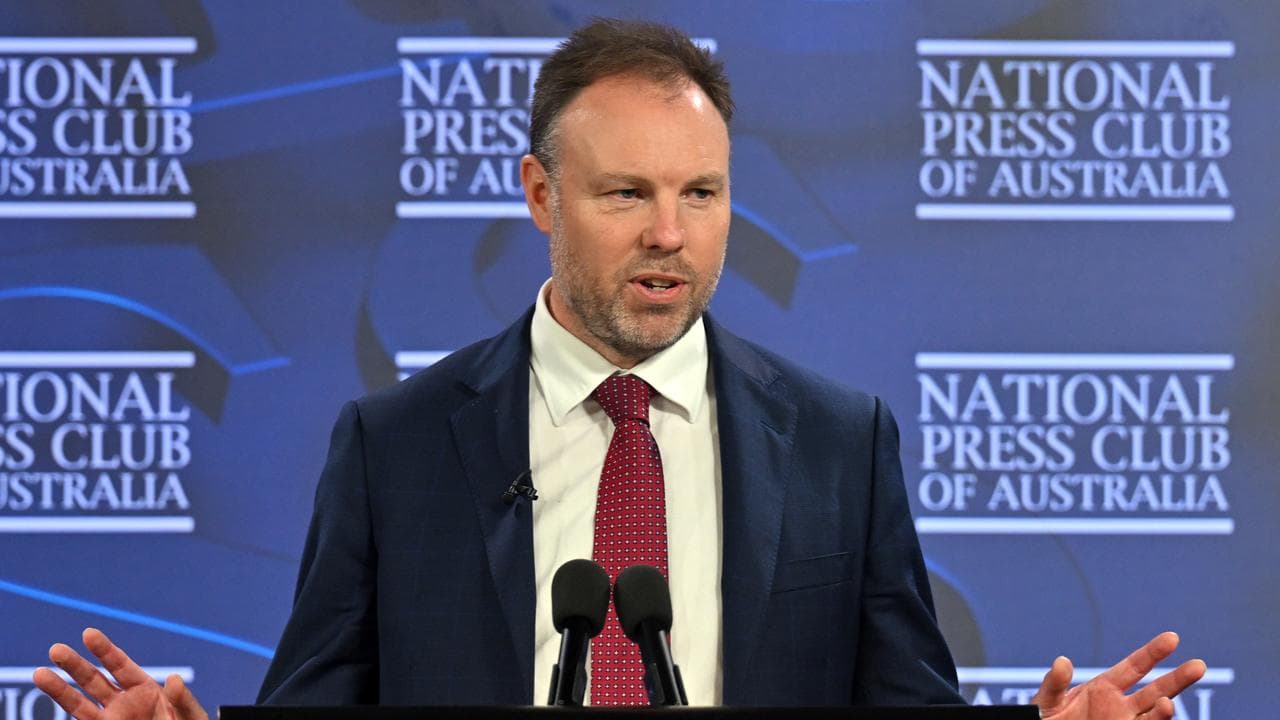
Shoppers could pay higher prices for a more limited selection of goods if Australia's big supermarket duopoly was broken up, the outgoing productivity tsar warns.
Giants Coles and Woolworths this week announced annual profits of more than $1 billion, even after spikes in cost-of-living pressures on households.
Asked if he thought there was value in a binding grocery code of conduct that allowed for their break up if breached, Productivity Commission chair Michael Brennan acknowledged a need for competition.
But he also said there could be unintended consequences that disadvantaged shoppers.
"It's easy to look at that aggregate and say we need to break that down, we need competition," he told the National Press Club in Canberra on Wednesday.
"(But) in many cases, consumers feel better off when they've got a Coles or Woolies because the prices are cheaper and the range is better."
Mr Brennan said one of the main drivers of concentration in the supermarket sector was not issues with consumer or competition laws, but rather the two giants' ability to plan, identify potential sites and freeze out rivals.
However, governments have already begun to address this by working directly with other supermarkets, he added.
"When governments are worried about that and want to bring in a Costco, often governments have taken a very proactive stance about allowing or holding hands of the inbound investor to navigate the planning system: identify sites, understand the rules, work with councils," he said.
"It's just an indication that sometimes it's the lever that you don't expect."
Mr Brennan's remarks come after the federal government revealed it had established a task force to review laws, policies and institutions to increase competition and boost the economy.
Assistant Minister for Competition Andrew Leigh said Australia had slumped into one of its "lousiest decades" of economic productivity since World War II.
"We've seen a rise in market concentration, we've seen an increase in mark-ups," he told reporters in Sydney.
"The poor may not have a car to drive to another suburb for a better deal. If you have a dodgy internet connection, it may be hard to shop around.
"And so in ensuring we have a more productive economy, we're also looking after some of the most vulnerable in Australia."
The task force, which will be supported by economics leaders like Grattan Institute CEO Danielle Wood and former ACCC chair Rod Sims, aims to provide continuous advice on competition over the next two years.
Treasurer Jim Chalmers said Australia's inflation challenge has changed in recent years, having shifted from shipping issues prompted by events like the Russia-Ukraine conflict to other factors.
Regardless, the task force will focus on putting downward pressure on the cost of living.
"When costs moderate, we want to see prices moderate as well," he said.
The team will look into issues like non-compete clauses that restrict workers from moving into better-paid jobs, merger reform and competition issues that may arise from new technologies.
Australian Chamber of Commerce and Industry CEO Andrew McKellar welcomed the review and called it a step in the right direction.
"Australia has long benefited from an open, competitive business environment, but we cannot rest on our laurels," he said.
"A dynamic economy requires vigorous competition, and if there are barriers to the provision of competitive markets then this inquiry could be useful."
The National Farmers Federation also applauded the announcement, but its president Fiona Simson said the review needed to deliver.
"If we don’t act now, Australia risks missing out on realising our potential."
The announcement comes as the treasurer prepares to launch on Thursday the latest Intergenerational Report which will examine the social, economic and demographic issues Australia will face over the next 40 years.




